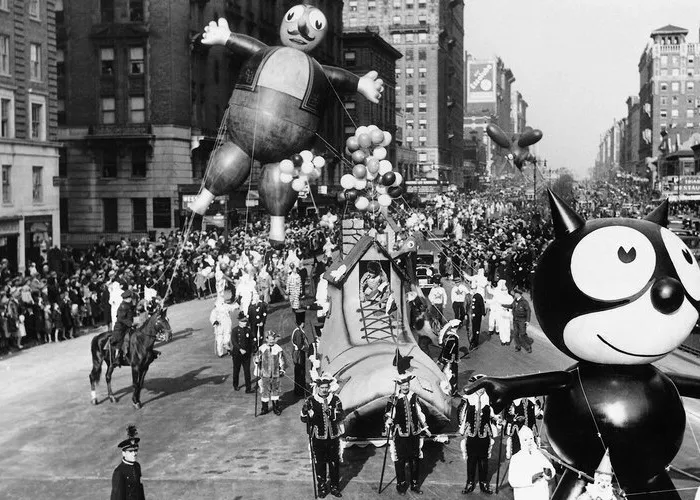November 27 has witnessed several significant events throughout American history, ranging from cultural milestones to pivotal political occurrences. This article explores these events in detail, providing context and implications for each.
What Happened on November 27 in American History?
The Establishment of the Nobel Prizes (1895)
On November 27, 1895, Alfred Nobel signed his last will and testament at the Swedish–Norwegian Club in Paris. This document established the Nobel Prizes, which were intended to reward individuals who contributed significantly to humanity through their work in various fields, including physics, chemistry, medicine, literature, and peace. Nobel was a Swedish chemist and inventor best known for inventing dynamite. His decision to create these awards stemmed from a desire to leave a positive legacy after his death, reflecting his belief in the potential for science and literature to improve society.The first Nobel Prizes were awarded in 1901, and they have since become some of the most prestigious awards globally. The establishment of these prizes marked a significant moment in recognizing and encouraging contributions to human welfare and knowledge.
The First Macy’s Thanksgiving Day Parade (1924)
The inaugural Macy’s Thanksgiving Day Parade took place on November 27, 1924, in New York City. This event was designed as a promotional spectacle for Macy’s department store and featured floats, marching bands, and large character balloons. The parade quickly became an American tradition, symbolizing the start of the holiday season.Originally named “Macy’s Christmas Parade,” it was rebranded to emphasize Thanksgiving. The first parade included animals from the Central Park Zoo and attracted over 250,000 spectators. Today, it is broadcast nationwide and draws millions of viewers each year, showcasing elaborate floats and performances.
Assassination of Harvey Milk and George Moscone (1978)
A tragic event occurred on November 27, 1978, when Harvey Milk, an influential gay rights activist and San Francisco city supervisor, along with Mayor George Moscone, was assassinated by former supervisor Dan White. This event marked a significant moment in LGBTQ+ history in the United States.Milk was one of the first openly gay elected officials in the country and fought tirelessly for LGBTQ+ rights. His assassination shocked the nation and galvanized the gay rights movement. Dan White was later convicted of voluntary manslaughter after claiming that he was suffering from diminished capacity due to a mental health condition at the time of the killings. This defense sparked outrage within the community and led to widespread protests.
The U.S. Senate Confirms Gerald Ford as Vice President (1973)
On November 27, 1973, the U.S. Senate voted overwhelmingly to confirm Gerald Ford as Vice President of the United States following Spiro Agnew’s resignation amid scandal. Ford’s confirmation was notable as he became the first person to assume the vice presidency without being elected to either that office or the presidency.Ford’s appointment came during a tumultuous period in American politics marked by Watergate scandals that ultimately led to President Richard Nixon’s resignation in 1974. Ford would later succeed Nixon as president after Nixon’s resignation.
The Battle of Mine Run (1863)
During the American Civil War on November 27, 1863, Union forces under General George Meade engaged Confederate troops led by General Robert E. Lee at Mine Run in Virginia. This battle was part of a series of confrontations during the winter months as both sides sought strategic advantages.Although Meade’s forces outnumbered Lee’s troops, they were unable to achieve a decisive victory due to strong Confederate defensive positions. The battle ended without significant changes on either side but showcased the ongoing struggle between Union and Confederate forces as they prepared for future engagements.
The First Living Liver Transplant (1989)
On November 27, 1989, a groundbreaking medical procedure took place at the University of Chicago Medical Center when Alyssa Smith became the first person to receive a liver transplant from a living donor—her mother Teresa Smith. This event marked a significant advancement in organ transplantation techniques.The surgery was performed by a team of surgeons who successfully transplanted part of Teresa’s liver into her daughter. Both mother and daughter recovered well after surgery. This procedure opened new avenues for organ transplantation by demonstrating that living donors could provide organs safely and effectively.
Hubble Telescope Discovers First Exoplanet Atmosphere (2001)
On November 27, 2001, NASA’s Hubble Space Telescope made history by detecting sodium in the atmosphere of an exoplanet known as HD 209458 b (also called Osiris). This discovery represented a significant milestone in astronomy as it was one of the first instances where scientists could analyze an atmosphere beyond our solar system.The detection of sodium suggested that exoplanets could have complex atmospheres similar to those found on Earth or other planets within our solar system. This finding has paved the way for further studies into exoplanet atmospheres and their potential habitability.
First Successful Partial Face Transplant (2005)
On November 27, 2005, doctors in France performed the world’s first successful partial face transplant on Isabelle Dinoire after she suffered severe injuries from a dog attack. The procedure involved transplanting tissue from a deceased donor onto Dinoire’s face to restore her appearance and functionality.This groundbreaking surgery raised ethical questions about organ donation and transplantation but also marked a significant advancement in reconstructive surgery techniques. It opened discussions about future possibilities for similar procedures on patients with severe facial injuries or deformities.
Conclusion
November 27 has been marked by significant historical events that have shaped various aspects of American culture, politics, science, and medicine. From groundbreaking medical advancements to pivotal moments in civil rights history, this day serves as a reminder of how individual actions can lead to broader societal changes. Each event not only reflects its time but also continues to influence contemporary discussions around ethics, rights, scientific exploration, and cultural traditions in America today.
Related Topics:

